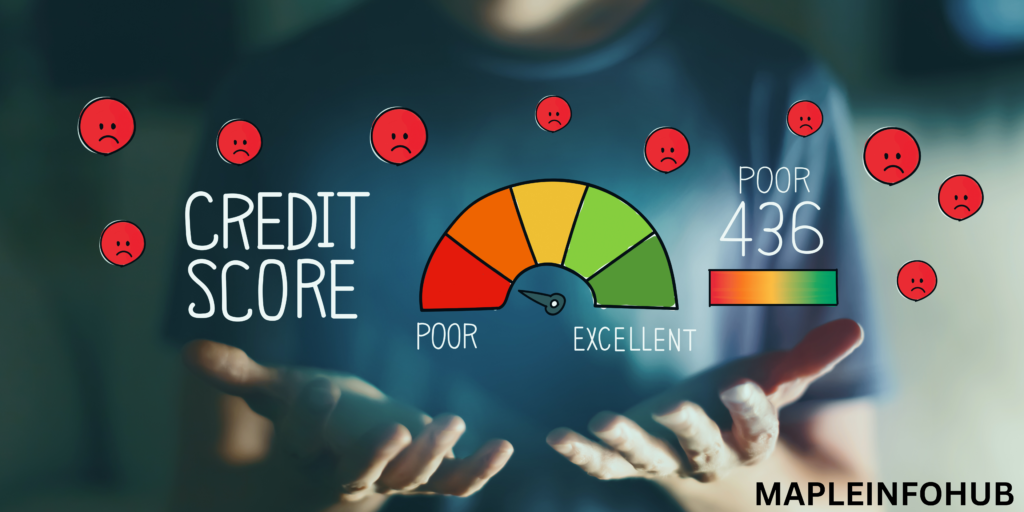
What is a Credit Score?
A credit score is a numerical representation of your creditworthiness, used by lenders to evaluate the risk of lending you money. It ranges from 300 to 900 in Canada, with higher scores indicating better credit health. This number is derived from your credit history and provides a snapshot of how well you manage debt and repay loans.
How Can You Check Your Credit Scores?
Checking your credit scores in Canada is simple and can be done through two main credit bureaus: Equifax and TransUnion. These bureaus offer free annual credit reports, which you can access online. Additionally, many financial institutions and online services provide credit score monitoring for free or as part of their services. Regularly checking your credit score helps you stay informed about your financial health and detect any inaccuracies or fraudulent activities early.
How Are Credit Scores Calculated?
Credit scores are calculated using various factors from your credit report. The major components include:
- Payment History (35%): Your record of on-time payments versus missed payments.
- Credit Utilization (30%): The ratio of your current credit card balances to your credit limits.
- Length of Credit History (15%): The duration of time you’ve been using credit.
- Types of Credit (10%): A mix of credit accounts, such as credit cards, mortgages, and installment loans.
- New Credit (10%): Recent applications for new credit and recently opened accounts.
Each factor plays a role in building a comprehensive picture of your credit behavior.
How to Build Credit in Canada
Building credit in Canada requires a strategic approach:
- Start with a Secured Credit Card: These cards are backed by a cash deposit, making them accessible even if you have no credit history.
- Pay Bills on Time: Consistently paying bills on time is crucial for a positive payment history.
- Keep Credit Utilization Low: Aim to use less than 30% of your available credit limit.
- Diversify Credit Types: Having a mix of credit accounts, like credit cards and loans, can improve your score.
- Monitor Your Credit Report: Regularly checking your credit report helps you stay on top of your credit status and address any discrepancies promptly.
What Factors Impact My Credit Scores?
Several factors influence your credit scores:
- Payment History: Late payments and delinquencies negatively affect your score.
- Credit Utilization Ratio: High balances relative to your credit limit can lower your score.
- Length of Credit History: A longer credit history typically boosts your score.
- Credit Mix: A variety of credit types can positively impact your score.
- Recent Credit Inquiries: Multiple recent inquiries can indicate risk, potentially lowering your score.
Understanding these factors can help you manage your credit more effectively.
How to Improve Your Credit Scores
Improving your credit scores involves consistent and responsible credit management:
- Pay Bills on Time: Set up reminders or automatic payments to ensure timely bill payments.
- Reduce Outstanding Balances: Aim to pay down high-interest debt first to reduce your overall debt load.
- Limit New Credit Applications: Only apply for new credit when necessary to avoid multiple hard inquiries.
- Check Your Credit Report for Errors: Dispute any inaccuracies with the credit bureaus to ensure your report is accurate.
- Use Credit Responsibly: Maintain low balances and avoid maxing out your credit cards.
By following these steps, you can steadily improve your credit score over time.
5 Things to Know About Your Credit Scores
- Regular Monitoring is Essential: Keeping an eye on your credit score helps you manage your financial health and catch potential issues early.
- Credit Scores Fluctuate: Scores can change based on your credit activity, such as opening new accounts or paying off debt.
- Impact of Hard Inquiries: Multiple hard inquiries in a short period can temporarily lower your score.
- Debt-to-Income Ratio: While not directly part of the credit score, a high debt-to-income ratio can impact your ability to get new credit.
- Financial Habits Matter: Consistent and responsible financial behavior is key to maintaining a good credit score.
